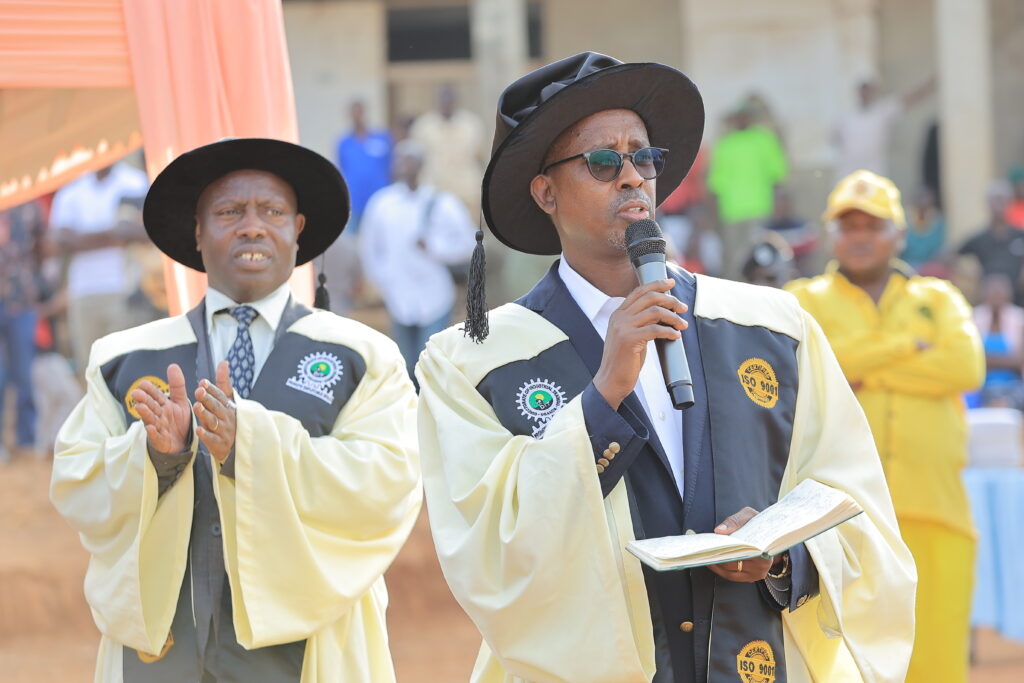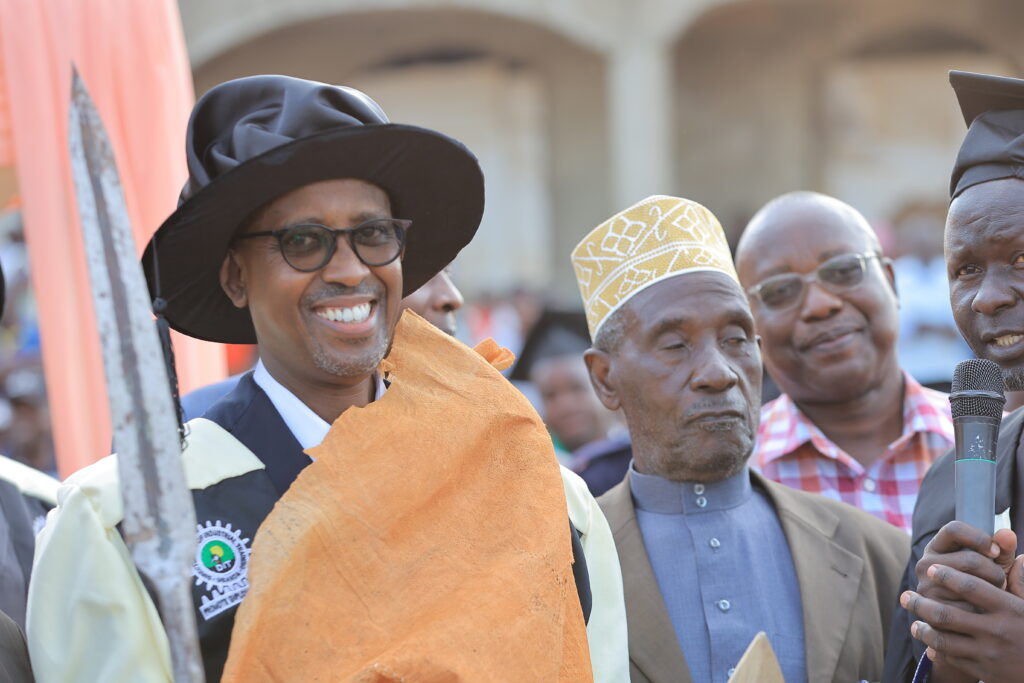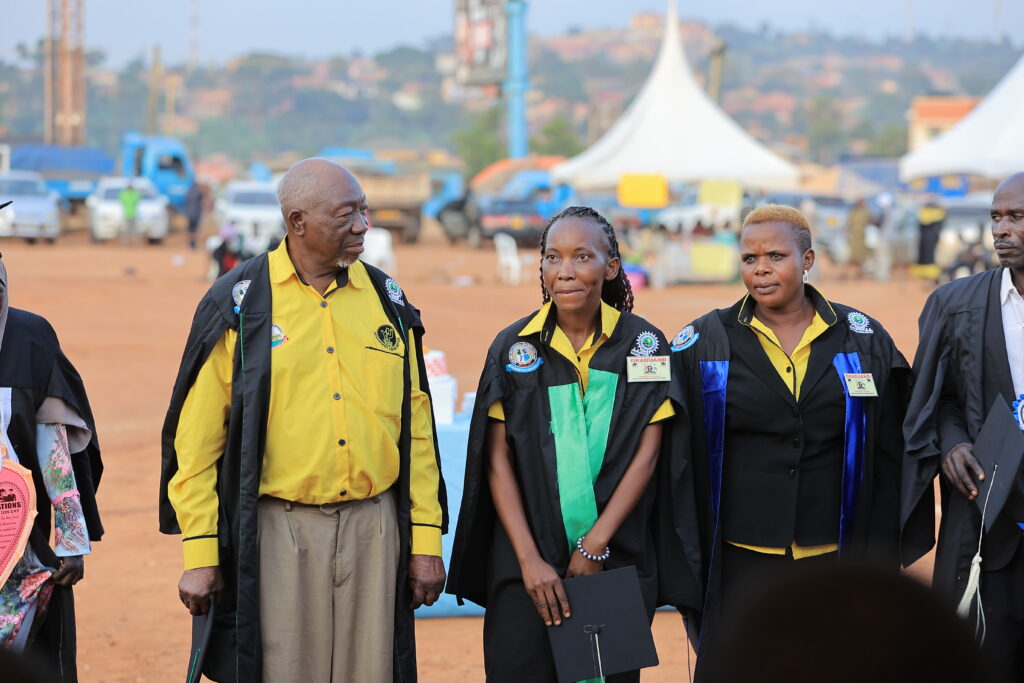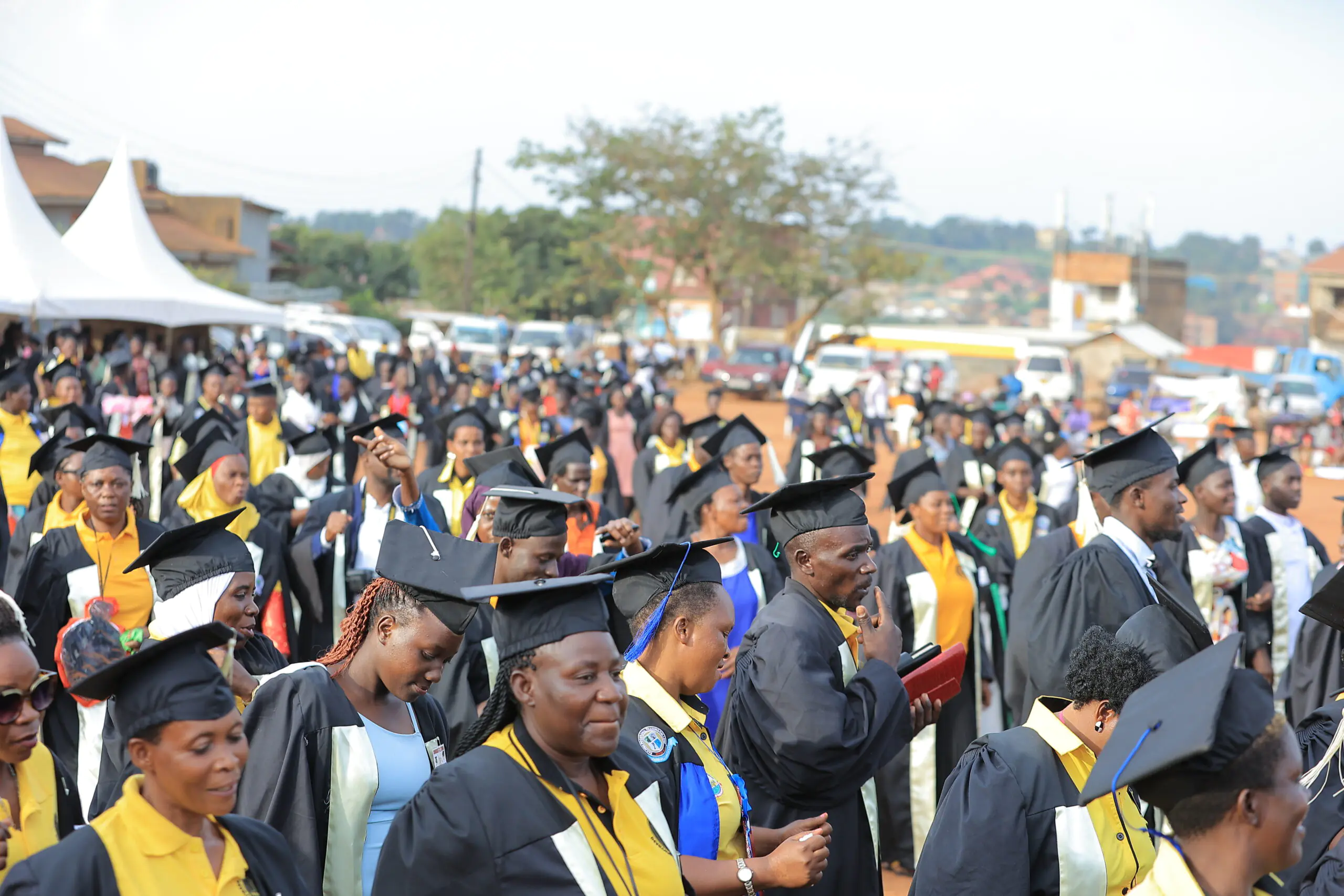The Presidential Advisory Committee on Exports and Industrial Development (PACEID) in conjunction with the Department of Industrial Training (DIT) at the Ministry of Education and Sports, on Saturday, graduated 700 people in the fields of fruit processing, vanilla growing and packing, plumbing and electrification, carpentry and joinery, liquid and bar soap making and mushroom growing. Other services included hair dressing, effluent extraction and treatment, baking technology and application, media and photography. The function which was attended by Patrick Byakatonda, Director General of DIT, Sheikhs Serunjogi and Mohammed Kyazze of Kayunga and Kawempe respectively, Bishop Lwandasa of Mt. Lebanon church in Mukono, took place at Kawempe Muslim Primary School in Kampala.

Presiding over the graduation ceremony which brought together students from Tororo, Amuru, Mbarara, Masaka, Jinja, Kamuli and Kampala districts, Odrek Rwabwogo, Chairman of PACEID, thanked minister of Education and Sports, Maama Janet Museveni for allowing DIT to skill people who would otherwise be left out of the system yet are very good employees in the export and industry services or being own job makers. “I thank her for recognizing these skills of talented youth who ordinarily feel left out by Ivy League universities and technical colleges that their parents cannot afford”, he said. He added, “it will take Africa some high-level investment in 25 training institutions of the size of Makerere University annually to be set up and funded for the next 50 years, in order for Africa catch up with the level of industrial and tertiary skills penetration India alone has gained in the last 30 years! How shall we then make it and compete in the world for the 200 million jobs that China is shedding off by 2040 to lower-level manufacturing, if we do not see these soft skills and certify them so they can be recognized globally?” Rwabwogo asked.
Rwabwogo went on, “it is even feels more special to us as PACEID to be graduating these young people to support our effort on aggregation and low-level processing of products for exports like vanilla, avocado, and pineapples from here in Kawempe. This area (Kawempe and Bwaise) along with Kasokoso (Kireka-Banda) along with Mulago and Kamwokya, seem to attract more rural to urban migration than many parts of the city. How will our country make use of this agricultural labour flocking into cities in search of better living conditions yet end up in slums and some in crime? We must be intentional in re-skilling them to do a better job than where they come from?”

He said Africa will be the most urbanizing continent in the world with 500 million Africans living in cities by 2040, according to the latest Mckinsey and company, a global consulting firm, report and Uganda remains one of the highest population growing countries in the world with over 70 percent below 30.
Byakatonda said, “The DIT certificates you receive today are really the ground level qualification to start with. You must put the skills gained here and use this certificate for both finding work or looking to start your own businesses. You however, need to keep training so that you get a higher-level certification”. Referring to Mr. Ahmed Kiggundu of the Glad 18 group based in Bwaise, who graduated in specialized cesspool emptying for crowded parts of the city, Byakatonda added, “we certify services such as National water and sewerage service workers. There is no reason why you as Glad 18, shouldn’t now find work across the country in emerging urban areas”.

Ahmed Kiggundu told the audience, “I had been a stone thrower and a collector of old tyres for burning in the streets during riots and giving hard time to security services until I discovered I could do something, even if it was dirty as emptying toilets, but it gives me legitimate income. Now I am very happy that I have a certificate along with 150 other members of my group.”
PACEID and DIT promised to go across the country and train more youths to support aggregating products for exports and getting better labour services for factories and the service sector in urban areas. President Yoweri Museveni under the state house skilling programme has been giving equipment and machinery for organized groups to improve their skills and trade on the domestic market better.

Sheikh Kyazze, the son of Sheikh Swaibu Semakula the first Mufti of Uganda, who began the school in 1920, asked the Government to prioritize rehabilitation of the school and the mosque as some of the national historical centers for the country’s tourism and education. “I call upon our beloved President Yoweri Museveni whose friend, the late Zubairi Bakari was one of the religious children of Sheikh Swaibu Semakula, to help us complete the portion of the mosque that requires UGX150m” said Sheikh Kyaaze.

